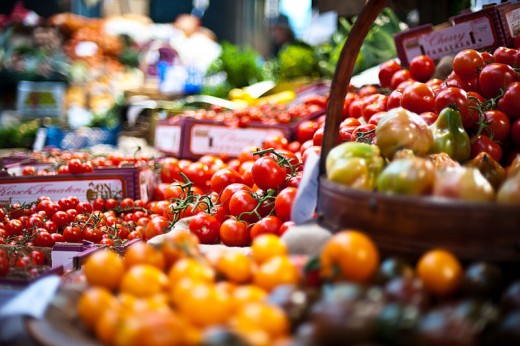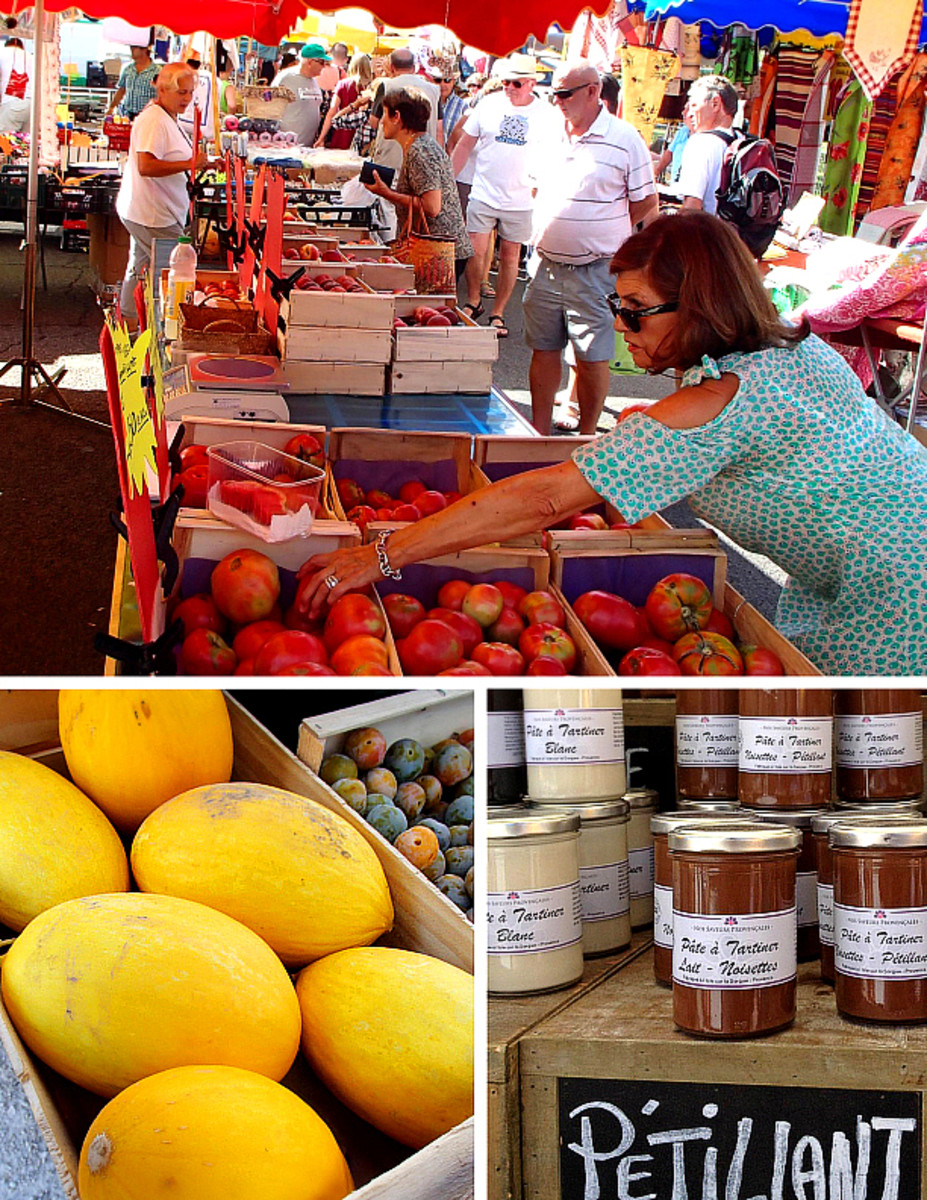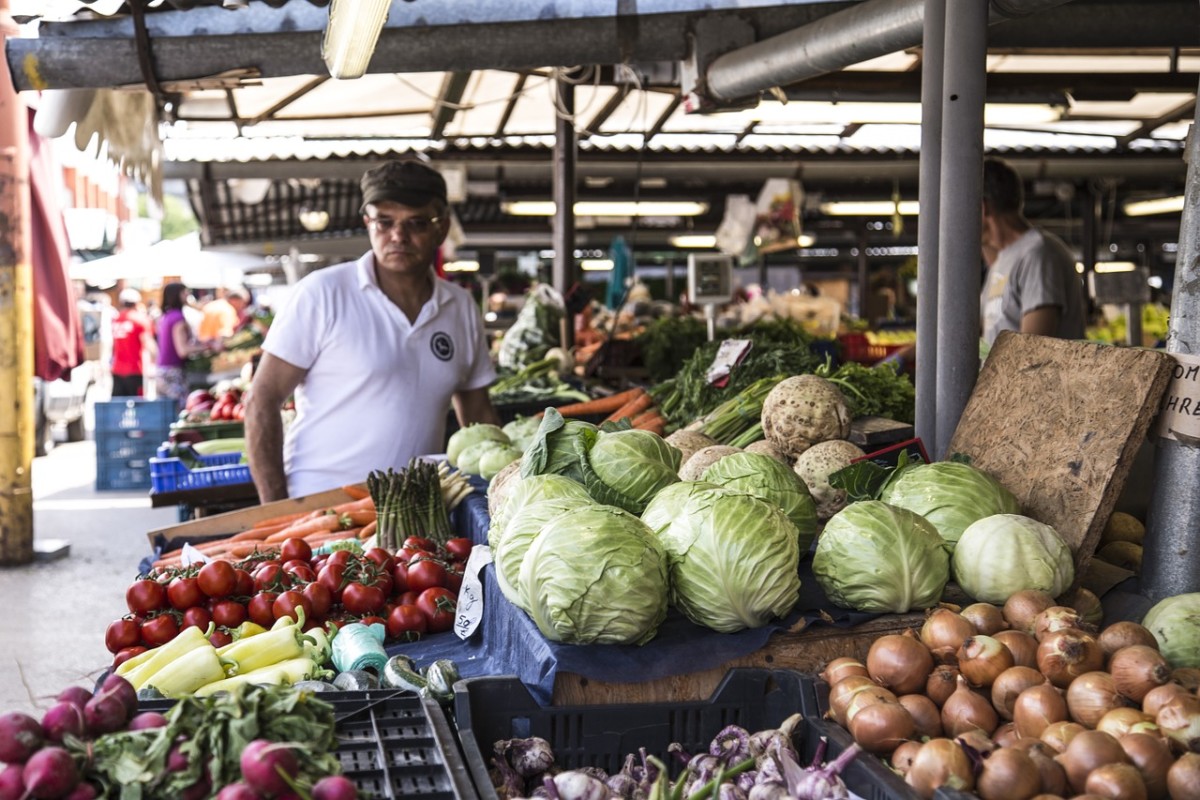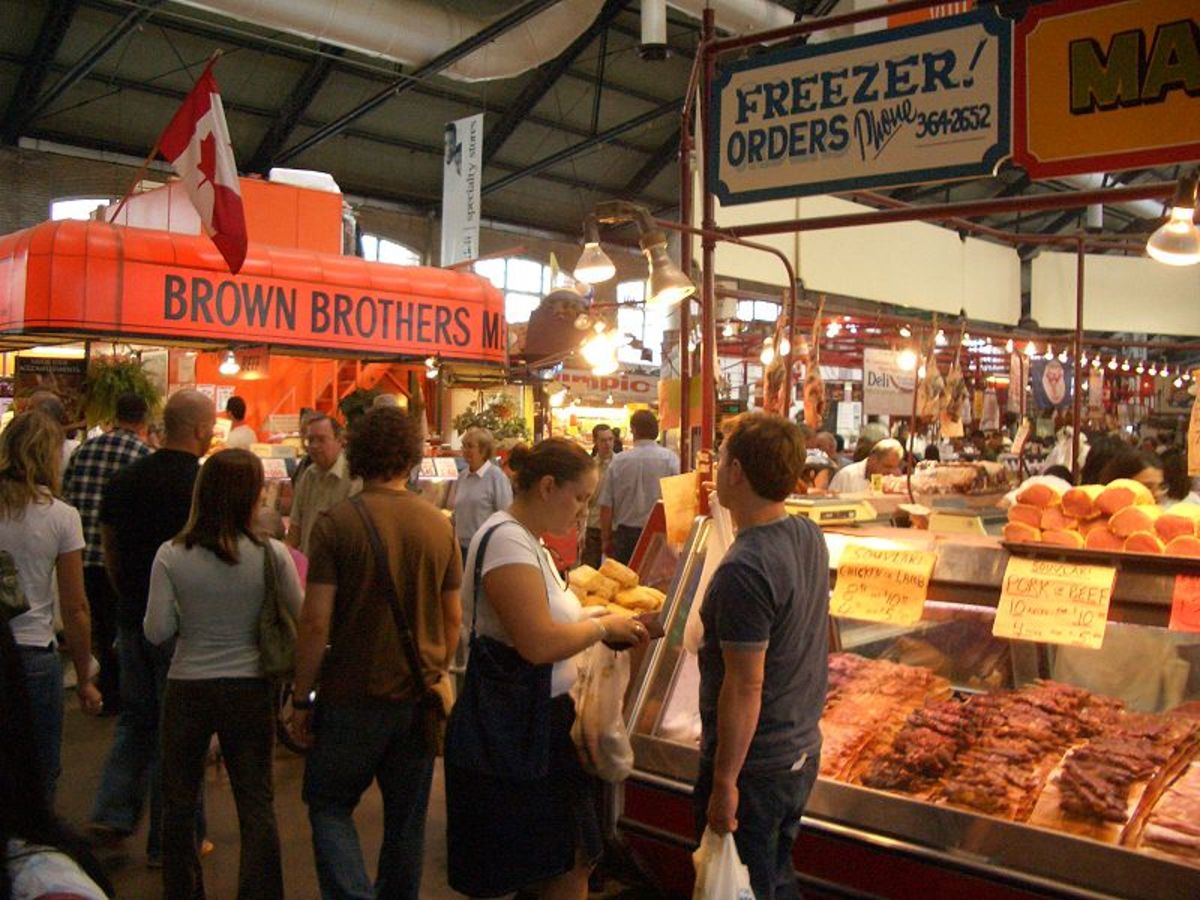Make Money Raising Produce

More Information on produce Marketing:
- How to Market Produce Effectively; a Beginners Guide to Market Selection
- Hills Vs. Rows, How to Raise Pumpkins and Gourds
- Soil Preparation Made Easy
- Poor Soil? Your Plants are Telling You the Story
- Missouri Produce Auctions
The Missouri Produce Auctions were started by individuals who gained experience from out East where produce auctions are more common. This will help you get an idea of how it works.
How do You go to the Market?
In the U.S., there is a large part of the economy that results from agriculture. We all partake in it, whether it's buying produce in the market, growing produce at home, or raising produce for sale. While these are only a couple of facets of the agricultural segment of our economy, this is what I will be focusing on.
There is money to be made in farming produce, or specialty crops. In recent years, there has been a trend in buying local produce because of health concerns with produce imported from other countries. The range of crops to raise are vast and knowing what scale you want to raise them on dictates how much, what, and where you'll raise them. You can sell your extra produce from your garden, raise produce as a hobby for an extra source of "fun money" or start your own produce farm and live solely off the profits from it. The following are things you need to think about before taking on this challenging yet rewarding opportunity:
- Time available to invest
- Capital available to invest
- Assets available to use other than capital, such as land, equipment, labor
- Markets in your area
- The logistics of your project (Getting produce from farm to consumer)
- Your skill level (You need to be able to raise produce)
Your time is a scarce resource, knowing how much you want or can spend on raising produce for sale will be a big factor in deciding to what extent you get into it. If you have little time to spare, and want a large operation, you will need vast amounts of capital to get a produce farm off the ground. For most, this wouldn't be feasible. Having little spare time in general will not be conducive to raising produce. This is not a get rich quick opportunity, it requires your time and effort to make it work. The amount of time you are willing to put in will directly correlate with how large you can be. Having some spare time may be more conducive to just selling extra produce at local farmers markets, or raising produce in a garden with the sole intention of selling at market. If you have a lot of time, capital, and assets, you may be interested in raising produce full time, although your skill level and knowledge of agricultural practices will be a deciding factor in this sort of venture.
Capital, or money, is very important as well. Seed, land or growing capacity, fertilizer, pesticides/herbicides, transportation, and marketing aren't free. You will need to have money available to purchase these and possibly equipment and extra labor, depending on how large your operation will be. For the passive produce grower, necessary capital will be much much less than in a full scale produce farm. Raising produce can make money at all levels, so long as you understand your market.
Finding markets is easier than you may think. Most areas have several farmers markets that are free to enter, or charge a nominal fee. There are websites that are dedicated to finding local farmers markets, as well as participation of local area chambers of commerce. Some markets are larger than others, which can contribute to your revenue generating potential. Smaller markets tend to draw smaller crowds, but pricing is a little more flexible, since you have less competition. Some areas, like here in Central Missouri, have produce auctions that bring buyers and sellers together at market. They work the same as any other auction, but with produce. Usually they have standardized units of measure for different types of produce to create uniformity for the buyers. Selling through grocery stores is a possibility for larger operations. Typically, a price must be set before buying, and a given number of units will be bought over a specified amount of time. One thing to note about selling wholesale to grocery stores is that there are insurance complications involved. You will probably be required to show proof of insurance to insure that not only the desired quantity of produce is available to sell, but also to insure against any defects in your produce that may result in legal action from the end consumer. This increases costs which, in turn, makes this a viable option only for produce farms. Most smaller operations, those raising small amounts of produce, will primarily sell through farmers markets. Produce Auctions are a viable marketing tool for small growers, but you must produce a certain amount to enter, which is usually posted by the auction company.
When selling in a farmers market, having a large variety of produce will aid in selling. Having only a few different types means customers would have to buy from several different producers, which is less likely. Having not only a wide variety of different produce, like tomatoes, carrots, peppers, etc., is just as important as having the varieties people want. For example, there are three different types of sweet corn, white, yellow, and bi-color. While there are people who like white or yellow, the vast majority of people like bi-color for its flavor and its ability to be stored. Peaches 'n' Cream, in my experience, is a very good variety of sweet corn to raise for sale. Researching what strains of different varieties are being produced and sold can help greatly, and is easy to do. Stroll through your local farmers markets, and see what they have, what they charge, and if the make price breaks for buying bulk quantities.
The way you display your produce is a seemingly unimportant point in the whole scheme of things, but it's very important. Displaying produce on brightly colored tables is the first step in drawing attention. Having clean, organized displays is also important. It conveys to your potential customer that they produce they purchase from you has been well cared for and is safe to eat. Having pricing displayed neatly is important as is pricing clearly. No one wants to be charged more than they though they were going to pay for a given product. Doing this with consistency, along with delivering quality produce, will turn your product into a brand of sorts. It will induce repeat business, which is the basis for lasting revenue and profits.
Getting your produce to market is obviously an issue to be addressed before you plant. If your going to be raising produce on a farm's scale, commercial trucks will be necessary. This again requires lots of capital. For the person raising smaller amounts of produce, having a truck or small trailer will suffice.
While I have listed this last factor last, it is arguably most important. Knowing how to raise good quality produce is a must. However if you don't, don't fret, there is a wealth of knowledge out the for learning how to raise produce. Articles range from preparing soil, to planting techniques, to troubleshooting plants issues. For the person seeking to raise produce on a large scale, business experience and an entrepreneurial personality will serve you will. With out it, raising produce on a commercial scale will be almost impossible. For the gardener with a love of raising produce and the desire to generate revenue from you passion, you already have the skills you need.
The information in this article is a basis for those interested in raising produce for profit. Whether your small or large scale, there is a wealth of information on capitalizing on your passion. I have included some links that will further help get you on your way. Happy gardening!








